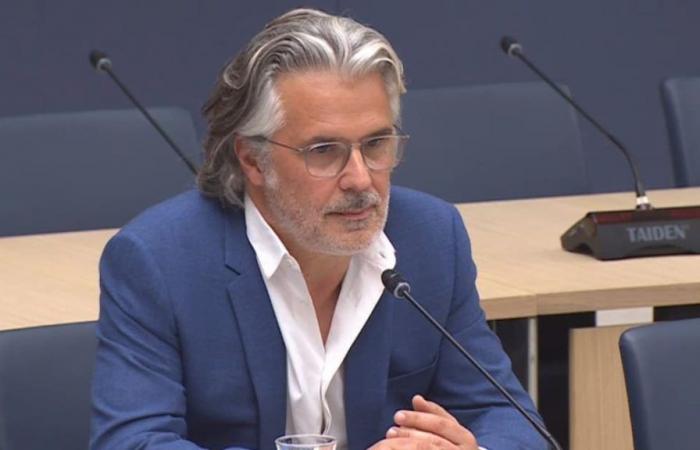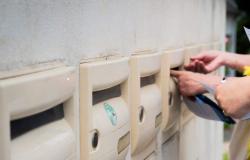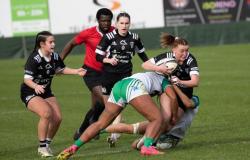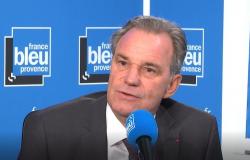The hearings of French leaders in the Senate shed a harsh new light on the nature of their motivations. At the center of the debates, Vincent Labrune, very uncomfortable when defending an abracadabra business plan. The editorial by Thibaud Leplat, editor-in-chief of the After magazine.
It’s the dreaded period of class councils. For the delegate it’s delicate, he’s caught between two fires. On the one hand, the promises to defend his voters as best he can: a class dinner? Easy to organize (at McDonald’s), no stakes of confrontation with the teachers (who don’t care as long as it’s not organized at home). And then the promises only bind those who believe in them. No risk of disavowal. Everyone pays for their Big Mac. Re-election is not in danger. On the other hand, a more subtle strategy: flatter the teachers while overselling his record. The interest is twofold: to protect the future without alienating the base. What matters is not to win the case (who really cares what channel will be broadcasting football on next season?) but to pretend to contest a scenario for which one is oneself responsible. Machiavelli at Jacques-Chirac middle school.
Subscribe to the After magazine here
Undoubtedly, it was this second strategy that Vincent Labrune had chosen, flanked by his assistant Arnaud Rouger — less docile than usual — during the 2 hours and 42 minutes of hearing before the Senate inquiry committee in charge of shedding light on the “financialization of football”. Behind his fogged glasses and the multiple “you are right, Mr. Senator” that introduced each of his answers, one could guess the sweat that the president of the LFP had shed in the preparation sessions. It is not every day that you have to answer to people who did not vote for you. His previous appearance in 2022 before the institution’s culture committee had not gone down in the annals of eloquence. This time, the flatterer had sworn to himself: he would be polite, respectful, docile in the face of “national representation”. The problem is that beneath the obsequiousness lies a massive fact: distrust.
Bunch of ingrates
It didn’t take long (a little over an hour) before the usual sighs, eyebrows, and untimely hair-doings came back, all punctuated by dubious pouts from Rouger, when Michel Savin allowed himself to insist on the abracadabra business plan that had served as a strategy for its main instigator and a sleeping pill for those who had validated it: 1 billion euros per year for a second-rate championship. This is the implacable conclusion that the hearing kept returning to. If we can imagine a scenario with a drop in revenue (as everywhere else), if we can admit that the constraints of the call for tenders need to be reviewed, there is no doubt at any time that the product was overvalued. Knowingly? This is the great taboo around which these hearings revolve. None of this would have mattered if a broadcaster had been found in the meantime and had paid the said sum. However, not only is this not the case at the time of writing this editorial, but potential broadcasters have changed their minds either due to a lack of obvious spin-offs (Amazon), or through distrust of the interlocutors (Canal+), or finally by simple principle of reality (DAZN).
Of course, when it came to discussing the salary and “bonuses” of the LFP president and his delegate, Sir Labrune did not fail to highlight the “exceptional agreement” of naming with MacDonald’s or the feat of having created a commercial company (of which he is also president) in the company of a Luxembourg company and from which the main delegates (the clubs) were carefully excluded. On what basis should the value of the work done be measured? On the business level, of course. After all, 3 million in bonuses, a salary tripled by his main client (50% is re-invoiced to CVC who apparently was not aware), 37.5 million euros in lawyers’ fees (“they are expensive in Paris”), 1000 euros per day in expenses (“he likes to eat” laughs Kita in the afternoon), out of a total of 1.5 billion in funds raised and 1 billion in annual turnover expected, it’s not expensive. Implied: you should thank us instead of sending us to confession, you bunch of ungrateful people.
127 million per seat
We would clap our hands if it were a trendy start-up. We would even have been ready to work on the Californian accent to better go and beat up the Americans at home with a lot of “made in France” technology. When money is private, the market must be able to operate freely. We can regret it, welcome it, we can find it a lot, not enough, it doesn’t matter, the economy is free. At least for the moment. No, what is more embarrassing in this affair – this is the meaning of the Senators’ intervention – is to recall that the organization of a competition is a public service delegation and that the income generated by it does not have exactly the same status as a sale of hamburgers.
In this respect, organising a business plan casually, paying competition managers on a fundraising campaign (this is not the core of their business) without a broadcasting contract (this is the core of their business), incurring expenses (a change of headquarters at 127 million euros) without guaranteeing the revenue and finally refusing to report to parliamentarians, all this poses an obvious ethical problem. In front of Waldemar Kita and Louis Nicollin, Michel Savin, scathing, summed up quite well the malaise surrounding these hearings “we did not create a commercial company to finance bankers, lawyers and members of the LFP”. Looking forward to the start of the school year (and the next elections).






